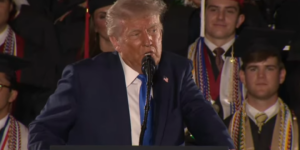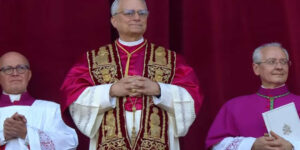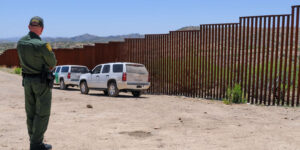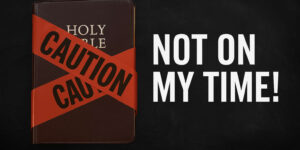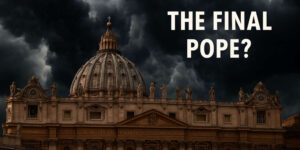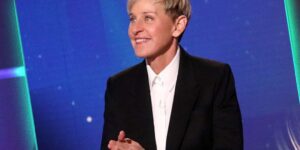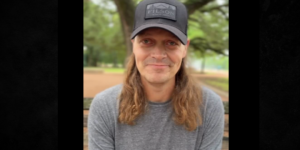Carson Struggles With Black Church Leaders
When David Bullock, a minister at Greater St. Matthew Church in Detroit, watches Ben Carson center stage at Republican presidential debates, he shakes his head.
“He seems like a completely different Ben Carson,” Bullock said.
Carson “was a superstar” when Bullock was growing up, he said. He and his classmates made Carson the subject of Black History Month projects that celebrated Carson’s rise from the same gritty Detroit streets where they lived to become one of the nation’s leading neurosurgeons in the 1980s.
African-American churches have a complicated relationship with Carson. They took a special interest in him, supporting his autobiography “Gifted Hands” and staging reenactments of his inspirational life story – contributing to his celebrity before he ever decided to enter the political arena.
As a presidential candidate, however, Carson, a Seventh Day Adventist, has alarmed many in the black church with his incendiary remarks about guns, Muslims, and another hero, President Barack Obama. To some of those who grew up in the church idolizing him, the Carson who has emerged in the presidential race is a far diminished figure.
His failure to capitalize on his longstanding relationship with African-American church leaders has potentially robbed Carson, who is sinking in national opinion polls, of a potential base of support in the runup to early nominating contests and, should he become the Republican nominee, the November 2016 election.
Rev. Delman Coates, a pastor in Clinton, Maryland, said African-American churches have always had a special connection to Carson, who has credited much of his professional success to his Christian faith.
In the past, Coates said he has used lessons from Carson’s life in his own sermons. But now, Coates said, Carson’s politics and some of his views have “tainted some of that reputation.”
Indeed, polls show that Carson’s political ascent largely has been fueled by the support of white evangelicals, not African-American churchgoers, who historically align with the Democratic Party. That has made Carson at times an estranged figure from the men and women who grew up idolizing him.
“I would not call him an African-American leader,” said Coates, who was particularly bothered by Carson’s suggestion that Muslims should be barred from seeking the presidency. “There’s a difference between being an African-American voice and being a voice of African-Americans.”
“Lord, You Be the Neurosurgeon”
Long before he entered political life, Carson raised his profile by speaking at churches and telling his story. His address at a Miami church in 2011 was emblematic of his message.
Talking about his success as one of the nation’s foremost pediatric neurosurgeon, Carson sermonized, “I realized it wasn’t me after all. It was the Lord. That’s when I said, ‘Lord, you be the neurosurgeon, I’ll be the hands.'”
For Carson, trying to convince black pastors and their congregants that his values line up with theirs remains a significant challenge, even though African-American voters tend to have more conservative views on issues such as gay marriage and abortion than their white counterparts.
In theory, states such as South Carolina and Michigan, which have so-called “open” primaries, black voters could cross party lines and vote for Carson without having to register as Republicans, a potentially hidden wellspring of support if he can tap into it.
Armstrong Williams, a top advisor to Carson, conceded that the candidate has, at times, alienated some African-Americans with his rhetoric.
“There are things that Dr. Carson has said in the past – equating Obamacare to slavery has not gone over well in that community,” he said in an interview. But now “he’s learned how to better communicate, better to speak the language and say it in a way that is not offensive.”
Black churchgoers will be willing to listen to Carson because of their shared history, Williams said. “They’re willing to give him a second chance and a third time.”
Carson held a press conference in Spartanburg, South Carolina, on Wednesday where he was endorsed by 20 national and local pastors, nearly half of whom were ministers of African-American churches.
At the press conference, Bishop Ron Thomas, a black pastor at Reconciliation Apostolic Ministries in Las Vegas, Nevada, said he was backing Carson out of worry “that our country is really losing touch with God.”
But Thomas may be the exception. The more typical response to Carson’s candidacy is that of Detroit’s Jacqueline Galloway-Blake, who met Carson more than 20 years ago when he came to address her church in Inkster, Michigan.
“I was in awe of him,” she said.
She doesn’t feel that way now. When he likened Obamacare to slavery, Galloway-Blake said she was horrified. “It’s disturbing to hear him,” she said.
Struggle to Reconcile
In Detroit and elsewhere, prominent African-American church leaders struggle to reconcile Carson the legend with Carson the politician, whose verbal missteps on the campaign trail have been well documented.
Bishop Charles Ellis, who oversees the massive 4,000-seat Greater Grace Temple in Detroit, was quick to praise Carson’s influence on a generation of African-American doctors. The Sunday School at Greater Grace once staged a reenactment of Carson’s life story.
But in his next breath, Ellis, a supporter of Democratic presidential contender Hillary Clinton, compared Carson to 2008 Republican vice presidential candidate Sarah Palin, who was lampooned for some of her statements.
“I also can understand how you can be very intelligent and very knowledgeable in one area, and be totally ignorant in another arena or area of life,” Ellis said. “Politics is not for everybody.”
Rev. Anthony Evans, president of the Washington-based National Black Church Initiative, an African-American advocacy group, described Carson as having two personalities, that of the gentle physician and the second, a hyper-conservative political novice. He criticized Carson for being too passive on the issue of tensions between African-Americans and urban police departments.
For Carson’s supporters in the African-American faith community, it’s made for an uphill battle.
Rev. Altheresa Howard, a pastor of a church in Lancaster, South Carolina, has been trying to recruit other black ministers to back Carson, including several who attended Carson’s press conference.
Still, she added, “We still have a lot of work to do.”
(Reporting by Alana Wise and James Oliphant, editing by Ross Colvin)
© 2015 Thomson Reuters. All rights reserved.















